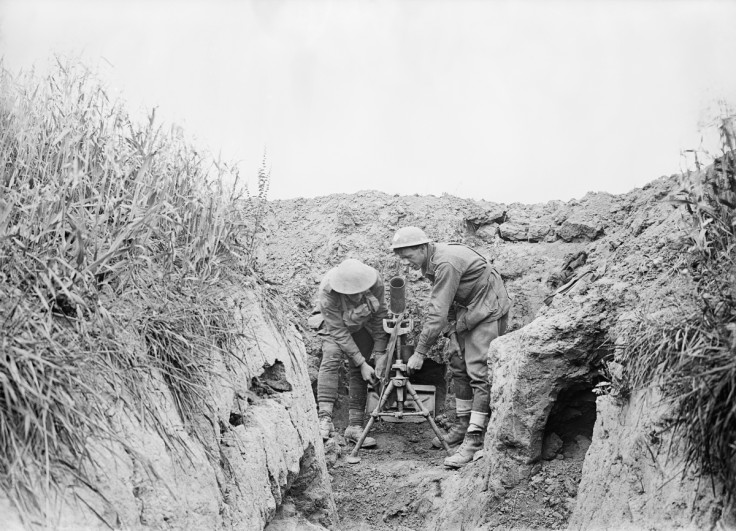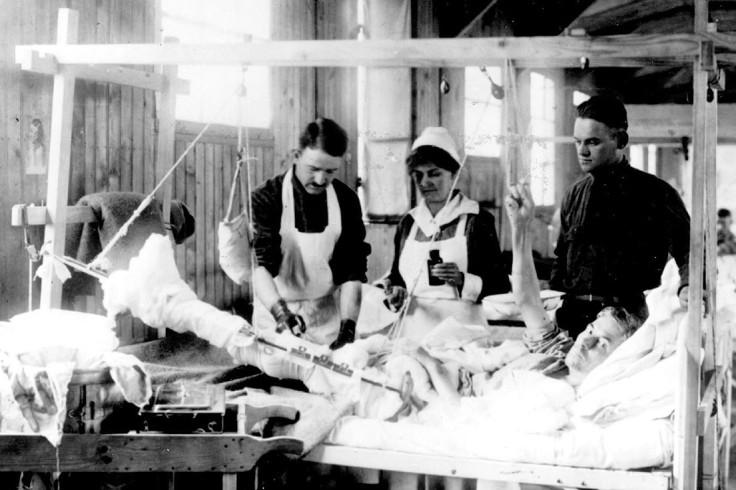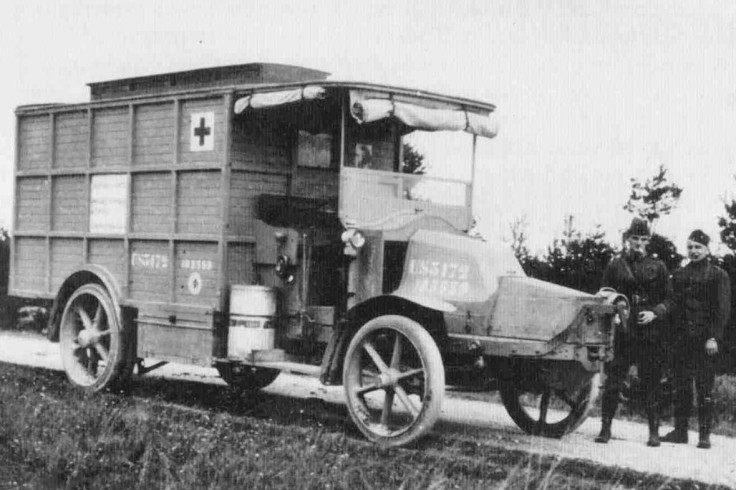World War I Mythbusters: Detonating the Lies and Misconceptions of the Great War

Myth: Britain could have stayed out of WW1
Reality: If we had stayed out of the war, as some historians suggested we could have, the outcome, and the consequences, would have been very different. The government makes the choice, based on a vote in Parliament. No other combatant has a vote on this issue.
Had we stayed out, we couldn't have used the threat of the Royal Navy to keep Italy out of the war in 1914, Italy may have come in on the German side, Germany would have conquered Paris, and we'd have seen Germany staring across the Channel, dominating Europe. Some cynics say it would have been like the EU today, but it wouldn't; it would have been a military alliance against us.
Myth: The British death rate in WW1 was pointless and ridiculously excessive
Reality: Yes the death rate was high, but you have to remember that as soon as the Liberal government commits to sending the field army, we are committed to fighting the big boys. Big wars mean big casualties. Although some generals don't help, the casualties are not their fault, they are the fault of the politicians who commit the army.
In World War One, we face Germany, the main European enemy, every day. In World War Two, we did it for six weeks in 1940 and 11 months after D-Day. There's an obvious reason why the casualties are much higher first time round.
Over the whole four-year course of World War One, our casualties are far lower as a percentage than any of the other combatants - 11.8% of our men compared with the French 13% and the Germans 16% - and they lose the war.

Myth: Field Marshal Haig was hated by his men
Reality: My grandfather was a private who served from 1916 to 1919 in three different regiments and was wounded three times. He read Alan Clark's famous book The Donkeys, castigating Haig, and didn't agree with it. He said to me: "We did our job, the generals did their job, we won." Haig was a bit like Gordon Brown because he was a bad communicator, but the men called him 'the chief.' They didn't hate him, they thought they were getting better all the time.
Myth: The Somme was an unprecedented bloodbath, with no redeeming features
Reality: If you look at the stats, the French army lose more in a single day in 1914 than we do on 1 July 1916, the infamous first day. The reason it's a shock for us is we've never deployed an army of half a million men before.
Haig had calculated for 40,000 casualties before the battle, he was out by about 10,000. He knew that this battle was going to be costly, and there was no way round it, other than huge numbers of casualties. Indeed the 18<sup>th division under Ivor Maxse, which is successful, suffers as many casualties as the 56<sup>th, which is a complete failure.
Yes the first day is the worst day in British military history, but we never repeat that, we learn. If you look at the overall four-month offensive, in terms of the number of casualties per day, it's more dangerous to serve under Monty in Normandy than under Haig on the Somme.
Myth: The tactics were outdated and inflexible
Reality: Look at the scale of the war, the numbers involved, and the nature of the war was clearly inevitable. Waterloo, in 1815, is 120,000 British troops facing the French on a two-mile front – this gives the two armies the scope to outmanoeuvre one another. But in World War I you have no room for manoeuvre, the flanks are secured on the Swiss border and the North Sea, so it becomes a war of attrition.
You have the means of movement, the means of getting so many men to the front, but not of outflanking the enemy on the field. And the Germans want to reduce the number of men per mile so they can ferry men to Russia, so the trenches are ideal for them. We, the Allies, have to attack, the Germans hold northern France and Belgium so they can sit where they are.
As the war goes on, it's the British who are trying to break the stalemate; as I said earlier, we learn from days like 1 July 1916. In terms of using armour, the creeping barrage, we are streets ahead of the Germans by 1918. And this brings genuine territorial gains; the end of the film birdsong, when the two lads pop up from the trench, would have been impossible. My grandfather was gassed in September 1918, not in a trench, but going through forest, following the retreating Germans. The fact we managed to get back to Mons, the original start line, should be a celebration.
In 1914 we can just about get our aircraft across the Channel. By 1919, we're crossing the Atlantic. Medical X-rays, blood transfusions, anti-tetanus serum... by the end of World War I, everything we see in a modern hospital is available in a field in northern France. All we're missing is penicillin, but we have everything else.

Myth: The events of WW1 were greeted with huge condemnation back home
Reality: At the end of WW1, people thought it had been costly but worthwhile. We had achieved our war aims and the regret was that the government had made a commitment of our main field army to Europe, which hadn't been done before. In all previous wars we had avoided the main theatre of operations, we didn't send the main field army, but we hadn't been able to avoid it this time.
The men and women who serve for Britain in World War I as victors, but we've turned them all into victims. They all thought they were doing the right thing, the fact there's another war isn't their fault.
Myth: World War I was a failure, and World War II was a success
Reality: In 1914, the purpose of the war is to defeat German militarism, specifically the invasion of Belgium, and we achieve that. At the end of the war, Belgium is a neutral country, and it has its currency and monarch back.
In World War Two, we go to war because Germany has invaded Poland. At the end of world war two, Poland is occupied by the Soviet Union, so it hasn't been liberated.

Andy Robertshaw is a freelance historian who has appeared on several BBC World War I documentaries, including Finding the Fallen, Trench Detectives and First and Last. He served as an actor and historical advisor on Stephen Spielberg's film Warhorse.
Andy has created his own World War I trench in Charlwood, Surrey where people can experience life in the First World War for themselves. You can find out more about the trench here [The Trench - Andy Robertshaw] or go to www.andyrobertshaw.com to read more about Andy and his work.
© Copyright IBTimes 2025. All rights reserved.





















